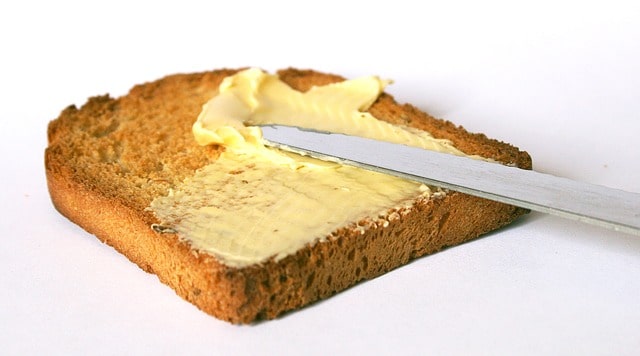A good band is like a well oiled machine. Every member has their own special role to fulfill to make sure everything runs smoothly. At the front of the stage you have the lead singer who entices the audience with his lyrics: Taking the listeners along for the ride and tugging on their heart strings.
Then you have the solo guitar player who whips up the crowd with face melting riffs and performing some kind of tap dance on top of small metal boxes which are connected with very short cables.
At the back of the stage, you have the drummer. Adding rhythm to the band and trying to keep the strange bunch together timing-wise. He or she displays a series of shining plates on long metal stands.
Last but not least, usually making a “stank face” and standing (at least partially) in the shadow, you have the bass player. His instrument looks like that of the guitar player. The only difference is, this guitar looks like it starts the day with a big bowl of steroids. Who is this mysterious figure holding this stringed up tree trunk, and what does he do?
Part of the rhythm section
In all seriousness though, to be a good bass player, it is important that you understand what your role is inside the band. This way you can make everybody sound better Just like a goal keeper needs to make sure he doesn’t let any ball through, you also have your part to play inside your team.
As a bass player you are a part of the rhythm section. As I’ve already mentioned many times on this website, the drummer is your best friend. By laying down a solid foundation and connecting your bass part to the drum part, you function as one instrument. That’s how you make a crowd dance! And that’s also how you make sure the rest of the band has the freedom to sound the best as they can.
If a band would be a sandwich, the drummer and the bass player would be the bread and butter of the band. These guys will make sure you don’t go hungry during the day.

Feel the bass…
A bass player has an enormous influence on how the song feels. And how the crowd dances to it. Play in front of the beat to drive the tune, or play behind the beat to make the song feel lazy. Also, the rhythm you play has great effect on how the listener experiences the song.
Whether you play straight eight notes or play long whole notes, the crowd and your band members will feel the difference.
…and dance!
If you have ever been to a club and danced to electronic dance music, you have definitely experienced what I am about to describe.
There is this part in the middle of every song where the song quiets down. You only hear some soundscapes (pads/strings). A clear voice is singing lyrics about a love that is still unfolding or one that has already been lost.
After 8 bars the drums come back in, The crowd starts to feel something is up. This goes on for about 16 bars, people are getting anxious. They try to dance, but for some magical reason it’s just not working.
Then you hear the drums build up. Before you know it, you experience an overload of hi hats that are being stuffed through a filter, and then….
THE BASS KICKS IN! Look around you. See anyone that isn’t dancing? Exactly! That is what the bass does.
Outlining the harmony
You might guess a bass player’s job ends there. If you did, you unfortunately guessed wrong. Being a bass player is hard work. We are also very responsible for giving context to the harmony. In practice this means, that a listener should get a general idea of what the harmony is to a tune, by listening to the bass guitarist.
Where a lot of instrumentalists have the luxury to wait until after the chord change to determine what they will play next, bass players have to be there on the one. Making us not only keepers of the groove, but also keepers of the harmony.
This is especially true in improvisational music where the bass player is often times responsible for making sure the form of the song is kept. Think of(or pray for) all the bass players in jazz combos that are making sure the trumpet player can play a ten minute solo over Giant Steps.
A combination of duties
So basically, there are two main duties a bass players has. The first one is to keep the groove together, and the second one is to outline the harmony. It’s often said that the bass is the instrument that connects the guitars/keys (harmony) to the drums (rhythm).
We do this by always thinking like an arranger. By playing what the song needs. When writing a bass part for a new song, you should be aware of what the drummer is playing. Especially pay attention to the kick drum part. As a starting point I always lay the notes I play on top of the kick drum. Depending on the feel I want to give the song I choose to either accentuate every kick hit or maybe just some of them.
Secondly I make sure I play the root note of every chord on the first downbeat of the bar (there are of course exceptions, but I won’t go into detail about that now). That way I make sure it’s clear what the context of the melody is. When creating a part I’m always aware what is happening around me. Do I copy a guitar line? Or do I accentuate the rhythm of the piano part?
The point that I’m trying to make is, that whenever you think of a part, create something that adds to the music. If you want to learn more about writing basslines and which decisions you can make while playing, check out “How to write better basslines: The 4 ingredients“.
It’s a role not a limitation
Remember that although you have a role which seems as hard a duty to fulfill as carrying the sky on your shoulders, this doesn’t have to limit you in any way. There is more than enough room to be creative, play beautiful lines and grab a moment to shine your brightest. As soon as you have laid down a solid foundation, you can add to your part in any way that feels good and musical to you and the rest of the band. As a bass player in a band situation you are mostly judged by one fact. Can you or can you not make the crowd move? Hone this skill with pride and you are set up for life!
If you enjoyed this article you might also enjoy this article about the 4 ingredients that make a bassline great
I hope you found this article helpful! Let me know in the comments what your thoughts are and if you have any questions or suggestions.


This entire article could be summed up in two words… JAMES JAMERSON
Hi Stu, thanks for commenting! James Jamerson is indeed a great example of a bass player who perfectly fits the bill. For anyone who doesn’t know him and reads this; James was the main bass player for Motown and changed how bass guitar sounded in popular music forever. His style was revolutionary and still today people are in awe when listening to this musical genius.
Amen,James Jamerson,is my influence,And this article describes my experience so far .I love James ,and the bass as a complete and wonderfull instrument to play.This article is what you will experience if you love music and stick with the learning and practice portion.You will find yourself playing things you never thought possible by you.Its a great feeling being a bass player.